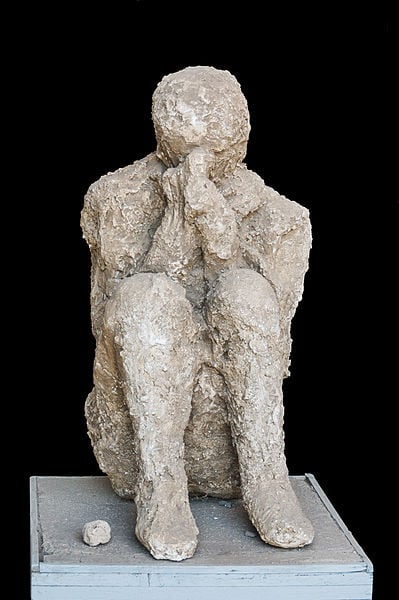I was standing with my hands clasped, head down, in a large brightly lit chapel. Five or six students my age stood around me, heads also bowed, hands on my shoulders. They were quietly murmuring. The sounds they were making were not in the English language, or any language at all.
After a few minutes the murmuring began to grow uneasy. Through my slitted eyes I saw them glancing at each other. Then I caught the whispering:
Is she doing anything?
Is anything happening yet?
I was not in a cult, exactly. I was in the middle of my sophomore year at a Catholic liberal arts university where I was pursuing my B.A. in philosophy and would ultimately earn an M.A. as well.
The school was small and insular, located atop a hill overlooking a grimy steel town. The university and the town had little interaction with one another. The university was more connected with its network of ideologically similar communities and institutions, including various covenant communities, and the Third Order Regular Franciscan friars, who ran the school. It was also connected with the Charismatic Renewal—a movement that could be summarized as “Pentecostalism for Catholics”, complete with speaking in tongues, prophesying, dancing around the chapel, being slain in the spirit (“flopping over” as my friends and I called it), and off-the-cuff-exorcisms.
I was going through a period of searching, which was why I was studying philosophy in the first place. I felt I needed to sample as many ideas and spiritualities that came my way, in order to tap into some wellspring of meaning that would give me guidance. As an intellectual, I didn’t think much of the charismatic events on campus. They seemed hysterical and sub-rational. Still, I figured I’d give it a try, so I signed up, with a friend, for their “Life in the Spirit” program, which would culminate with the laying on of hands, at which point I would—presumably—receive the gifts of the spirit.
I didn’t expect to babble or flop over, and I was not disappointed, though the students gathered around me apparently were, to judge from their whispers.
Nothing is happening.
I was pleased that nothing happened. Perhaps the true gift to me, from the Spirit, was a capacity to discern when something is not only balderdash, but dangerous balderdash. Or maybe I had already seen a lot of weird shit and was not disposed to be impressed by displays of supposedly supernatural events, especially if they were patently useless.
Babbling in tongues and uttering indiscernible prophetic Words is not useful. It has nothing in common with the stories passed down and recorded in the Book of Acts, of how the Spirit gave the apostles gifts of true prophecy, healing, and the ability actually to speak and understand different languages. That would have been useful, especially if I’d been slacking on my German studies. And healing would be useful, but those who claim to be able to do it never can. They take people’s faith and their money and walk away. Sometimes the people die due to lack of actual health care.
Fake faith-healers are an obvious source of mischief in religious groups, but during my time on the edges of the charismatic movement, I saw a lot that was less overt. The amateur exorcisms that went on at that campus did a lot of damage. It was bad enough to have a priest inform you that you have a “spirit of disobedience,” meaning a demon of disobedience—and that happened often, in confessionals and spiritual direction.
Worse though were the “exorcisms” themselves. Often people who were subjected to them displayed classic behavior one would associate with lurid films about possession: gargling, foaming at the mouth, uttering guttural nonsense, flailing and twitching. Afterwards the people were usually not better, but worse—dazed, troubled, out of touch.
I believe now that these impressionable and vulnerable young persons were under the psychological influence of manipulative spiritual leaders and were probably having seizures induced by stress. I also think the power of suggestion was at work, often in an atmosphere of mob frenzy.
Looking back now I also understand that the movement itself, though no doubt involving many decent and well-meaning people, was fundamentally dangerous, and that the spiritual leaders on campus were using their authority abusively. “By their fruits you shall know them” is a good spiritual dictum.
And the fruit born from that movement was widespread trauma.
People should not have to go to therapy to recover from their experience in a religious tradition or faith community. No, not every faith tradition is for everyone. Yes, people will sometimes be turned off by unpleasant practitioners of a faith, or even upset at unscrupulous religious leaders. As we have been informed ad nauseam, there is that “human element” in the church. But that human element should not be at once so unrestrained, and so toxic.
What I saw in the charismatic movement at that institution, and in covenant communities, and among the apparition-chasers we would encounter later was not simply human frailty. It was deeply evil.
Since then, I have encountered so many people who are still recovering from the trauma they experienced due to religion—my religion, specifically, though I don’t doubt there are also people recovering from trauma induced by other denominations and religions too. We need to address this. People who enter into a faith community in search of connection, meaning, truth, and goodness should not end up having to flee, wounded. They should not have to be in therapy for years.
I don’t know whether I should be in therapy or not. Maybe I got lucky. Maybe I’m in denial. Maybe I don’t believe I can even find a reliable therapist in my area. I do know that I am in an ongoing process of deprogramming from the years I spent inducing in myself a willingness to believe in an authoritarian interpretation of religion which I now understand to be a fabrication, contrary to the Gospels, contrary to the teachings of Jesus. Its fruits are all wrong. Yet for a long time I dedicated my learning and my intellectual capacity to convincing myself and others that our subservience was somehow freedom. I did so, God help me, under the impression that I was experiencing intellectual freedom.
A church that wounds, a church that heals.
A theme running through my posts here, which was inspired by my friend H.L. Vogl’s guest piece on “two Catholic churches,” is that the church really does have two completely distinct faces, and that they are in opposition to each other. One of these churches harms. And I don’t just mean the clergy abuse, and the cover-ups, and the defenses of abusers–though this alone should be a wake-up call. I mean the manipulative spiritual direction, the distorted moral code foisted on consciences, the use of religion as a bludgeon, bad theologies of suffering, people forced to stay with abusive partners, LGBTQ persons shamed and outcast, unmarried pregnant women fired by Catholic organizations, and church leaders enabling fascist political movements.
And that’s just now. Dive into our history and the list gets long enough to fill an encyclopedia.
Yet there is that other church, and it is a church that heals. I don’t mean fake faith healings, either.
A few years ago I managed to catch a snippet of season two of The Handmaid’s Tale on Hulu. A scene I vividly remember is when the protagonist is hiding away from an authoritarian theocracy that would like reduce her to a tool for procreation. When she realizes that the abandoned complex she is hiding in was once used as an execution chamber, she builds a shrine and recites the Catholic prayers for the dead.
That moment has stayed with me as an image of a faith practice that is a comfort for the oppressed and reminded me that the God we worship is the God who casts down the mighty and lifts up the poor, who lays low mountains to bring justice to the land. I think also of how white colonizers forced a white Christianity onto indigenous groups, how white slavers abused Black slaves with a white God—and how these oppressed peoples discovered their own Christianity, the faith of the downtrodden who hunger for righteousness, who found Christ with a face like their own. I think of Juan Diego meeting Mary of Nazareth in the guide of an Aztec princess.
Religion ought to be, not a bulwark for oppressive powers, but a solace for the oppressed. It certainly should not be traumatizing wounded people further. We should not have to be looking out for signs of spiritual abuse, especially in spaces where we are going for community, wholesomeness, safety–yet, just yesterday, fellow Patheos writer Mary Pezzulo addressed just this issue.
Catholics have a responsibility to look at the extent to which we have permitted our religion to be co-opted by authoritarian and abusive powers. The proof is all around us, in the lives that have been blighted by their experience of “good Christian folks.”
We should not be trying to unite these two “sides” of the church, or reach a compromise between them, any more than we should try to reach a compromise between the abuser who beats their victim and the physician who tries to heal them.
Image credit: Cast_sitting_victim_Pompeii.jpg













